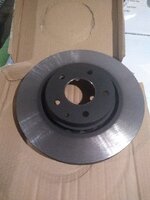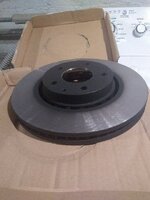- :
- San Antonio, Texas
- :
- '15 CX-5 Miata AWD
I worked in brake development for 17 years and this is categorically not the case.
Nope, not this either.
Interesting notions but absolutely no truth in either of them. It*s all speculation and conjecture.
How could you say that for example tibis comment is conjecture, when mazda 100% has a braking logic to reduce rolling moments when coming out of a corner.. they even publish media about it.
Interestignly enough, my rear brakes produce a lot more dust than my fronts even though they provide less brake force and have a thinner rotor (less heat capacity)
Last edited:


